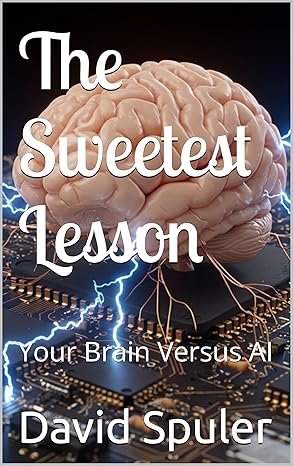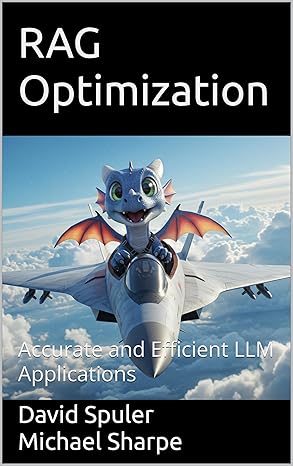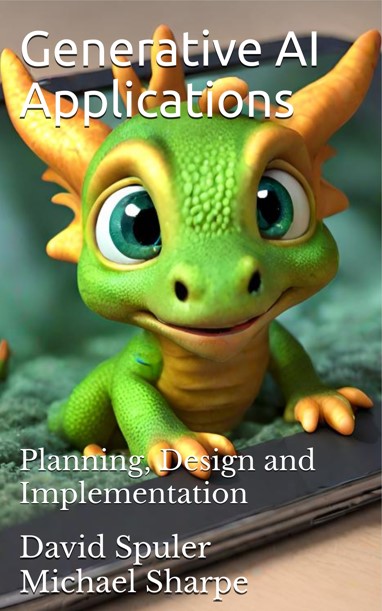Aussie AI
Mechanistic Interpretability
-
Last Updated 17 November, 2025
-
by David Spuler, Ph.D.
Mechanistic interpretability is the analysis of internal LLM computations during attention to understand or interpret why the LLM emitted the answers that it did. This involves analysis of the signals from the activations in the latent space of the embeddings. Mechanistic interpretability was initially a read-only analysis to aid in explainability, but arithmetic modifications of the activations are also possible in methods such as attention steering and activation patching.
Research on Mechanistic Interpretability
Research papers on mechanistic interpretability:
- Daking Rai, Yilun Zhou, Shi Feng, Abulhair Saparov, Ziyu Yao, 2 Jul 2024, A Practical Review of Mechanistic Interpretability for Transformer-Based Language Models, https://arxiv.org/abs/2407.02646
- Mengru Wang, Yunzhi Yao, Ziwen Xu, Shuofei Qiao, Shumin Deng, Peng Wang, Xiang Chen, Jia-Chen Gu, Yong Jiang, Pengjun Xie, Fei Huang, Huajun Chen, Ningyu Zhang, 4 Dec 2024 (v4), Knowledge Mechanisms in Large Language Models: A Survey and Perspective, https://arxiv.org/abs/2407.15017
- Xintong Wang, Jingheng Pan, Longqin Jiang, Liang Ding, Xingshan Li, Chris Biemann, 23 Oct 2024, CogSteer: Cognition-Inspired Selective Layer Intervention for Efficient Semantic Steering in Large Language Models, https://arxiv.org/abs/2410.17714
- Hesam Hosseini, Ghazal Hosseini Mighan, Amirabbas Afzali, Sajjad Amini, Amir Houmansadr, 15 Nov 2024, ULTra: Unveiling Latent Token Interpretability in Transformer Based Understanding, https://arxiv.org/abs/2411.12589
- Naomi Saphra, Sarah Wiegreffe, 7 Oct 2024, Mechanistic? https://arxiv.org/abs/2410.09087
- Leonard Bereska, Efstratios Gavves, 23 Aug 2024 (v3), Mechanistic Interpretability for AI Safety -- A Review, https://arxiv.org/abs/2404.14082
- Neel Nanda, 8th Jul 2024, An Extremely Opinionated Annotated List of My Favourite Mechanistic Interpretability Papers v2, https://www.alignmentforum.org/posts/NfFST5Mio7BCAQHPA/an-extremely-opinionated-annotated-list-of-my-favourite
- Nikhil Anand, Dec 20, 2024, Understanding “steering” in LLMs And how simple math can solve global problems. https://ai.gopubby.com/understanding-steering-in-llms-96faf6e0bee7
- Chashi Mahiul Islam, Samuel Jacob Chacko, Mao Nishino, Xiuwen Liu, 7 Feb 2025, Mechanistic Understandings of Representation Vulnerabilities and Engineering Robust Vision Transformers, https://arxiv.org/abs/2502.04679
- Ala N. Tak, Amin Banayeeanzade, Anahita Bolourani, Mina Kian, Robin Jia, Jonathan Gratch, 8 Feb 2025, Mechanistic Interpretability of Emotion Inference in Large Language Models, https://arxiv.org/abs/2502.05489
- Artem Kirsanov, Chi-Ning Chou, Kyunghyun Cho, SueYeon Chung, 11 Feb 2025, The Geometry of Prompting: Unveiling Distinct Mechanisms of Task Adaptation in Language Models, https://arxiv.org/abs/2502.08009
- Zeping Yu, Yonatan Belinkov, Sophia Ananiadou, 15 Feb 2025, Back Attention: Understanding and Enhancing Multi-Hop Reasoning in Large Language Models, https://arxiv.org/abs/2502.10835
- Lukasz Bartoszcze, Sarthak Munshi, Bryan Sukidi, Jennifer Yen, Zejia Yang, David Williams-King, Linh Le, Kosi Asuzu, Carsten Maple, 24 Feb 2025, Representation Engineering for Large-Language Models: Survey and Research Challenges, https://arxiv.org/abs/2502.17601
- Samuel Miller, Daking Rai, Ziyu Yao, 20 Feb 2025, Mechanistic Understanding of Language Models in Syntactic Code Completion, https://arxiv.org/abs/2502.18499
- Yifan Zhang, Wenyu Du, Dongming Jin, Jie Fu, Zhi Jin, 27 Feb 2025, Finite State Automata Inside Transformers with Chain-of-Thought: A Mechanistic Study on State Tracking, https://arxiv.org/abs/2502.20129
- Kevin Meng, David Bau, Alex Andonian, Yonatan Belinkov, 13 Jan 2023 (v5), Locating and Editing Factual Associations in GPT, https://arxiv.org/abs/2202.05262
- Yingbing Huang, Deming Chen, Abhishek K. Umrawal, 28 Feb 2025, JAM: Controllable and Responsible Text Generation via Causal Reasoning and Latent Vector Manipulation, https://arxiv.org/abs/2502.20684
- J. Katta, M. Allanki and N. R. Kodumuru, "Understanding Sarcasm Detection Through Mechanistic Interpretability," 2025 4th International Conference on Sentiment Analysis and Deep Learning (ICSADL), Bhimdatta, Nepal, 2025, pp. 990-995, doi: 10.1109/ICSADL65848.2025.10933475. https://ieeexplore.ieee.org/abstract/document/10933475/
- Ying Shen, Lifu Huang, 20 Mar 2025, LLM Braces: Straightening Out LLM Predictions with Relevant Sub-Updates, https://arxiv.org/abs/2503.16334
- Lee Sharkey, Bilal Chughtai, Joshua Batson, Jack Lindsey, Jeff Wu, Lucius Bushnaq, Nicholas Goldowsky-Dill, Stefan Heimersheim, Alejandro Ortega, Joseph Bloom, Stella Biderman, Adria Garriga-Alonso, Arthur Conmy, Neel Nanda, Jessica Rumbelow, Martin Wattenberg, Nandi Schoots, Joseph Miller, Eric J. Michaud, Stephen Casper, Max Tegmark, William Saunders, David Bau, Eric Todd, Atticus Geiger, Mor Geva, Jesse Hoogland, Daniel Murfet, Tom McGrath, 27 Jan 2025, Open Problems in Mechanistic Interpretability, https://arxiv.org/abs/2501.16496
- Hang Chen, Jiaying Zhu, Xinyu Yang, Wenya Wang, 15 May 2025, Rethinking Circuit Completeness in Language Models: AND, OR, and ADDER Gates, https://arxiv.org/abs/2505.10039
- Jingcheng Niu, Xingdi Yuan, Tong Wang, Hamidreza Saghir, Amir H. Abdi, 14 May 2025, Llama See, Llama Do: A Mechanistic Perspective on Contextual Entrainment and Distraction in LLMs, https://arxiv.org/abs/2505.09338
- Vishnu Kabir Chhabra, Mohammad Mahdi Khalili, 5 Apr 2025, Towards Understanding and Improving Refusal in Compressed Models via Mechanistic Interpretability, https://arxiv.org/abs/2504.04215
- Michael Nuñez, July 15, 2025, OpenAI, Google DeepMind and Anthropic sound alarm: ‘We may be losing the ability to understand AI’, https://venturebeat.com/ai/openai-google-deepmind-and-anthropic-sound-alarm-we-may-be-losing-the-ability-to-understand-ai/ (Monitoring the text-based interim "thinking-out-loud" reasoning of models in CoT.)
- Tomek Korbak, Mikita Balesni, (and many more authors) July 2025, Chain of Thought Monitorability: A New and Fragile Opportunity for AI Safety, https://tomekkorbak.com/cot-monitorability-is-a-fragile-opportunity/cot_monitoring.pdf
- M Toker, I Galil, H Orgad, R Gal, Y Tewel, G Chechik, 2025, Padding tone: A mechanistic analysis of padding tokens in t2i models, Proceedings of the 2025 Conference of the Nations of the Americas Chapter of the Association for Computational Linguistics: Human Language Technologies, (Volume 1: Long Papers), pages 7618–7632, April 29- May 4, 2025, https://aclanthology.org/anthology-files/pdf/naacl/2025.naacl-long.389.pdf (Padding effect on image generation.)
- Abir Harrasse, Philip Quirke, Clement Neo, Dhruv Nathawani, Luke Marks and Amir Abdullah, 27 Jul 2025, TinySQL: A Progressive Text-to-SQL Dataset for Mechanistic Interpretability Research, https://arxiv.org/abs/2503.12730
- Xi Chen, Aske Plaat, Niki van Stein, 24 Jul 2025, How does Chain of Thought Think? Mechanistic Interpretability of Chain-of-Thought Reasoning with Sparse Autoencoding, https://arxiv.org/abs/2507.22928
- Charles O'Neill, Mudith Jayasekara, Max Kirkby, 12 Aug 2025, Resurrecting the Salmon: Rethinking Mechanistic Interpretability with Domain-Specific Sparse Autoencoders, https://arxiv.org/abs/2508.09363
- Neta Glazer, Yael Segal-Feldman, Hilit Segev, Aviv Shamsian, Asaf Buchnick, Gill Hetz, Ethan Fetaya, Joseph Keshet, Aviv Navon, 21 Aug 2025, Beyond Transcription: Mechanistic Interpretability in ASR, https://arxiv.org/abs/2508.15882
- Bear H\"aon, Kaylene Stocking, Ian Chuang, and Claire Tomlin, 30 Aug 2025, Mechanistic interpretability for steering vision-language-action models, https://arxiv.org/abs/2509.00328
- Yujian Ma, Jinqiu Sang, Ruizhe Li, 11 Sep 2025, Behind the Scenes: Mechanistic Interpretability of LoRA-adapted Whisper for Speech Emotion Recognition, https://arxiv.org/abs/2509.08454
- Yoon Pyo Lee, 15 Sep 2025, Mechanistic Interpretability of LoRA-Adapted Language Models for Nuclear Reactor Safety Applications, https://arxiv.org/abs/2507.09931
- Aaron Mueller, Jannik Brinkmann, Millicent Li, Samuel Marks, Koyena Pal, Nikhil Prakash, Can Rager, Aruna Sankaranarayanan, Arnab Sen Sharma, Jiuding Sun, Eric Todd, David Bau, Yonatan Belinkov, 10 Sep 2025, The Quest for the Right Mediator: Surveying Mechanistic Interpretability Through the Lens of Causal Mediation Analysis, https://arxiv.org/abs/2408.01416
- Maxime M\'eloux, Fran\c{c}ois Portet, Maxime Peyrard, 2 Oct 2025, Mechanistic Interpretability as Statistical Estimation: A Variance Analysis of EAP-IG, https://arxiv.org/abs/2510.00845
- Bianca Raimondi, Daniela Dalbagno, Maurizio Gabbrielli, 14 Oct 2025, Analysing Moral Bias in Finetuned LLMs through Mechanistic Interpretability, https://arxiv.org/abs/2510.12229
- J Rosser, Jos\'e Luis Redondo Garc\'ia, Gustavo Penha, Konstantina Palla, Hugues Bouchard, 22 Oct 2025, Stream: Scaling up Mechanistic Interpretability to Long Context in LLMs via Sparse Attention, https://arxiv.org/abs/2510.19875
- Yu-Ting Lee, Fu-Chieh Chang, Hui-Ying Shih, Pei-Yuan Wu, 19 Oct 2025, Intrinsic Self-Correction in LLMs: Towards Explainable Prompting via Mechanistic Interpretability, https://arxiv.org/abs/2505.11924
- Katharina Simbeck, Mariam Mahran, 22 Sep 2025, Mechanistic Interpretability with SAEs: Probing Religion, Violence, and Geography in Large Language Models, https://arxiv.org/abs/2509.17665
- Kriz Tahimic and Charibeth Cheng, 3 Oct 2025, Mechanistic Interpretability of Code Correctness in LLMs via Sparse Autoencoders, https://arxiv.org/abs/2510.02917
- Hakaze Cho, Haolin Yang, Brian M. Kurkoski, Naoya Inoue, 25 Sep 2025, Binary Autoencoder for Mechanistic Interpretability of Large Language Models, https://arxiv.org/abs/2509.20997
- Sean Trott, 26 Sep 2025, Toward a Theory of Generalizability in LLM Mechanistic Interpretability Research, https://arxiv.org/abs/2509.22831
- Hadi Asghari, Sami Nenno, 4 Oct 2025, Mechanistic Interpretability of Socio-Political Frames in Language Models, https://arxiv.org/abs/2510.03799
- Reuben Narad, Leonard Boussioux, Michael Wagner, 24 Oct 2025, Mechanistic Interpretability for Neural TSP Solvers, https://arxiv.org/abs/2510.21693
- Rohan Gupta, Iv\'an Arcuschin, Thomas Kwa, Adri\`a Garriga-Alonso, 11 Oct 2025, InterpBench: Semi-Synthetic Transformers for Evaluating Mechanistic Interpretability Techniques, https://arxiv.org/abs/2407.14494
- Michal Sutter, November 14, 2025, OpenAI Researchers Train Weight Sparse Transformers to Expose Interpretable Circuits, https://www.marktechpost.com/2025/11/14/openai-researchers-train-weight-sparse-transformers-to-expose-interpretable-circuits/ (Training tiny highly-sparse models as "circuits" is similar to a heuristic or a "mini model".)
More Attention Research Topics
Related LLM research areas for long context optimization of the attention methods include:
- Attention optimization (main page)
- Local attention
- Linear attention
- Sparse attention
- Multi-Head Attention (MHA)
- Muti-Query Attention (MQA)
- Group-Query Attention (GQA)
- Flash attention
- Paged attention
Other topics in attention research:
- Low-rank matrix attention
- Medusa attention
- Block attention
- Cross attention
- Fused head attention
- Hybrid local-global attention
- FFT attention
- QKV computation optimizations
- Additive attention
- Multiplicative attention
- Graph attention
- Chunked attention
- Attention sink
- Attention steering
- Bilinear attention
- Attention-free methods
- Mixture-of-Heads (MOH) Attention (MoE+MHA)
- Star attention
- Ring attention
AI Books from Aussie AI

|
The Sweetest Lesson: Your Brain Versus AI: new book on AI intelligence theory:
Get your copy from Amazon: The Sweetest Lesson |

|
RAG Optimization: Accurate and Efficient LLM Applications:
new book on RAG architectures:
Get your copy from Amazon: RAG Optimization |

|
Generative AI Applications book:
Get your copy from Amazon: Generative AI Applications |

|
Generative AI programming book:
Get your copy from Amazon: Generative AI in C++ |

|
CUDA C++ Optimization book:
Get your copy from Amazon: CUDA C++ Optimization |

|
CUDA C++ Debugging book:
Get your copy from Amazon: CUDA C++ Debugging |
More AI Research
Read more about: